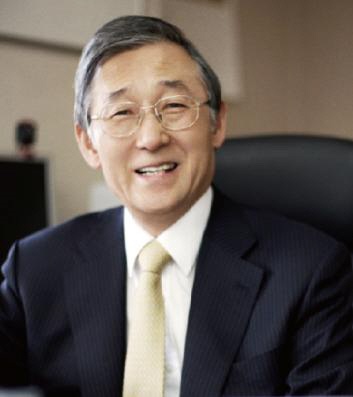people
Dr. Jang-Moo Lee, the incumbent Chairman of the KAIST Board of Trustees, has been re-elected to head the office. His term will begin from the date of approval by the Minister of Science, ICT and Future Planning of Korea and will last for three years.
Dr. Lee received his undergraduate and master’s degrees in mechanical engineering from Seoul National University. He later earned his doctoral degree in mechanical engineering from Iowa State University in the United States.
Joined the faculty of his alma mater in 1976, Dr. Lee held various posts within the university including the dean of the engineering college. He served as the president of the Association of Korean Engineering Colleges, the founding chairman of the Korea Evaluation Institute of Industrial Technology, the president of the Korean Society of Mechanical Engineers, the 24th president of Seoul National University, and the 13th president of the Korean Council for University Education. He now serves as the president of the National Science and Technology Council of Korea and the chairman of Climate Change Center’s Board of Directors.
Dr. Lee has received numerous honors and awards, among others, the Academic Award of the Korean Society of Mechanical Engineers (1985), the Order of Science and Technology Merit from the Korean government (2005), the National Academy of Sciences Award (2005), and the Order of Service Merit in Blue Stripes (2010) from the Korean government. He was also selected as the Alma Mater Proud from Kyunggi High School in 2011.

-
research KAIST Develops a Multifunctional Structural Battery Capable of Energy Storage and Load Support
Structural batteries are used in industries such as eco-friendly, energy-based automobiles, mobility, and aerospace, and they must simultaneously meet the requirements of high energy density for energy storage and high load-bearing capacity. Conventional structural battery technology has struggled to enhance both functions concurrently. However, KAIST researchers have succeeded in developing foundational technology to address this issue. < Photo 1. (From left) Professor Seong Su Kim, PhD
2024-11-27 -
event KAIST Office of Global Initiative Hosts 2024 Global Startup Internship Seminar
< Photo of ImpriMed CEO Sungwon Lim’s lecture > The Office of Global Initiative at KAIST successfully hosted the 2024 Global Startup Internship Seminar (GSIS) from Wednesday, November 20, to Friday, November 22. Now in its third year, following the 2022 Global Startup Internship Fair, the GSIS aims to introduce KAIST students to internship opportunities at U.S.-based startups and encourage participation in global internship programs, particularly for students with entrepreneu
2024-11-25 -
research KAIST Secures Core Technology for Ultra-High-Resolution Image Sensors
A joint research team from Korea and the United States has developed next-generation, high-resolution image sensor technology with higher power efficiency and a smaller size compared to existing sensors. Notably, they have secured foundational technology for ultra-high-resolution shortwave infrared (SWIR) image sensors, an area currently dominated by Sony, paving the way for future market entry. KAIST (represented by President Kwang Hyung Lee) announced on the 20th of November that a research t
2024-11-22 -
event KAIST’s RAIBO2 becomes the World’s First Robo-dog to Successfully Complete a Full-course Marathon
KAIST's quadrupedal walking robot "RAIBO", which can run seamlessly on sandy beaches, has now evolved into "RAIBO2"and achieved the groundbreaking milestone by becomeing the world's first quadrupedal robot to successfully complete a full-course marathon in an official event. < Photo 1. A group photo of RAIBO2 and the team after completing the full-course marathon > KAIST (President Kwang Hyung Lee) announced on the 17th of November that Professor Je Min Hwangbo's research team of t
2024-11-17 -
research KAIST Unveils New Possibilities for Treating Intractable Brain Tumors
< Photo 1. (From left) Professor Heung Kyu Lee, KAIST Department of Biological Sciences, and Dr. Keun Bon Ku > Immunotherapy, which enhances the immune system's T cell response to eliminate cancer cells, has emerged as a key approach in cancer treatment. However, in the case of glioblastoma, an aggressive and treatment-resistant brain tumor, numerous clinical trials have failed to confirm their efficacy. Korean researchers have recently analyzed the mechanisms that cause T cell exhaus
2024-11-15